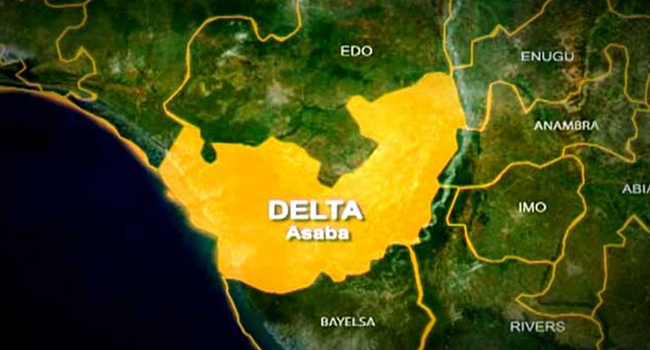ONE of the industries that have sustained socio-economic gains of the country is the creative industry and Delta State has produced talents, taken a commanding position in Nigeria’s creative landscape and culminating in Governor Sheriff Oborevwori receiving the prestigious Herbert Wigwe Award for Excellence at the Africa International Film Festival (AFRIFF) in Lagos.
The recognition, which also honoured Vice President Kashim Shettima, reinforces Delta’s longstanding reputation as one of the nation’s strongest engines of entertainment and cinematic talent. Represented at the ceremony by his deputy, Sir Monday Onyeme, the governor expressed gratitude to AFRIFF and reiterated the administration’s commitment to nurturing an industry that is increasingly critical to national development.
Beyond the glamour of the award, it is a timely reminder that the creative economy is no longer a mere cultural expression; it is serious business, contributing billions of naira to the Gross Domestic Product (GDP) and positioning Nigeria as Africa’s film powerhouse.
According to the National Bureau of Statistics (NBS), the creative industry contributes an estimated 2.3 per cent to Nigeria’s GDP, with Nollywood alone generating over $600 million in annual revenue and employing more than a million people directly and indirectly.
There is no doubt that Delta State has, in recent years, pursued deliberate policies to attract filmmakers, content creators, performers, and investors, recognising the film and cultural sector as a solid contributor to employment creation, tourism, and talent export.
The state’s creative credibility is not accidental. Presently, Delta has produced some of the country’s most recognisable stars in music, Nollywood, comedy, and broadcast media. Delta plays a significant role in this ecosystem, not only by providing talent but also by providing space, physical, financial, and administrative, for creativity to thrive.
A major enabler of this growth has been the peaceful, business-friendly environment that the state has managed to maintain. No serious investor places capital where insecurity and instability threaten production timelines, talent movement, and equipment logistics. Delta’s stability has given producers the confidence to shoot films, organise concerts, stage performances, and relocate production crews into the state.
The availability of facilities such as the Asaba Leisure Park and Film Village, public recreation spaces, and film support installations makes Delta a more attractive proposition compared to states where such resources are nonexistent.
With Oborevwori’s government committing to a full-scale film village, a mini-Hollywood, the stakes have been raised even further. A dedicated film city could transform Delta into a production hub where actors, producers, screenwriters, musicians, editors, and post-production specialists coexist in a single professional environment.
To us, it is a vision that aligns with global trends. In the United States, Hollywood is not just a place; it is an industrial ecosystem. South Africa’s Cape Town Film Studios, Rwanda’s Kigali Creative Hub, and Ghana’s growing digital production clusters are evidence that African countries are institutionalising the business side of creativity.
However, as we celebrate ambition, there must also be accountability and strategic focus. The logical question now is whether this new film village represents an entirely new development or a continuation and expansion of existing infrastructure. If a previous facility has already consumed significant resources but remains under-utilised or incomplete, then the administration must demonstrate lessons learned, not duplication.
Creative infrastructure should not become another political landmark photographed, commissioned, and forgotten. Strengthening existing facilities, upgrading them to world-class standards, and ensuring their optimal use may be a more cost-efficient strategy than spreading capital too thin.
At the same time, building infrastructure is only half of the solution. The creative value chain requires power supply, equipment financing, training institutions, legal protection for creatives, and robust distribution frameworks. Without these, a film village becomes a glamorous shell. The government must ensure that its support extends beyond construction into capacity development. Partnerships with broadcasters, streaming platforms, film academies, and distributors will determine whether Delta’s creative ambitions translate into sustainable economic returns.
Yet, the opportunity before the state cannot be overstated. If filmmakers fully take advantage of the enabling environment, Delta could witness significant job creation and new streams of internal revenue through taxation, tourism spending, and international productions.


